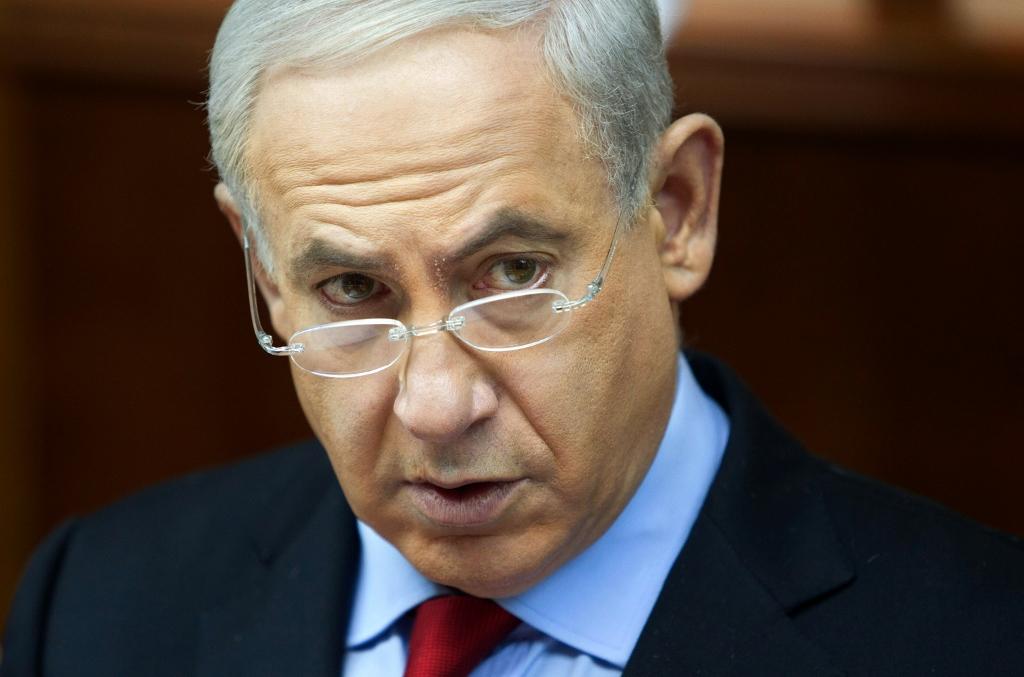2013 full of looming political crises
Israel’s Prime Minister Benjamin Netanyahu on Dec. 23, 2012 in Jerusalem, Israel.
This has been "an exceptionally political year" in the words of one analyst, starting with the problems of the euro zone and concluding with all eyes on Washington as the US teetered atop the "fiscal cliff."
While there aren't as many major elections scheduled for 2013 (2012 saw the US, Russia and France go to the polls and China anoint its new leader), there is plenty of potential for international politics to deliver market-moving surprises, according to analysts.
"Whether newly elected or once popular, elected leaders are finding their approval ratings steadily declining," Tina Fordham,senior political analyst at Citi, pointed out, citing plunging ratings for France's President Francois Hollande and Russia's Vladimir Putin.
The threat of popular uprising has not abated, and could be fueled by wider information access in countries like China, Fordham warned.
"Global political elites currently face a combination of challenges almost unprecedented in the modern era during peacetime, and a greater level of public scrutiny, thanks to wider access to information, than at any time in history," she added.
Two of the world's potential trouble spots — Israel and Iran — are holding elections next year, Israel in January and Iran in June.
Whatever way you look at it and whoever wins, the probability of a strike against Iran's nuclear facilities is going up, Alistair Newton, senior political analyst at Nomura, told CNBC, though he added the odds were still pretty low.
"Markets are going to continue to put a political risk premium on political turmoil in the Middle East."
The Israeli election is likely to result in a victory for Benjamin Netanyahu's hawkish government, according to Newton. He warned that this could lead to more unrest, although Netanyahu is likely to be sensitive to international pressure too.
China is viewed as stable after the leadership transition — but so was the Middle East before the Arab Spring. There is rising popular awareness of corruption in the world's second-biggest economy, as Fordham pointed out, with data from the Pew Global Attitudes Project suggesting half of all Chinese now state that corrupt officials are a "very big problem," an increase from 39 percent in 2008.
And of course the euro zone crisis still has plenty of potential to disturb, despite a year of apparent progress by its policymakers and the promise of the European Central Bank President Mario Draghi to do"whatever it takes" to save the single currency.
"The one thing that really concerns me is the social tension. If you look at disposable incomes for the middle class and earnings for lower earners in Europe, they've never been worse off. This crisis has really benefited the one percent at the expense of the rest," Steen Jakobsen, chief economist at Saxo Bank, told CNBC.
"People naively think that being inside the club of Europe is protecting them for some reason."
Elections in Germany, the euro zone's paymaster, in September and in Italy, one of its most worrying states, in March are likely to be key pivots for where Europe goes next year.
Germany's election will be particularly anxiously watched. Greece will be kept in the euro zone at least until the German election because of Merkel, according to Newton, who says there is a 65 percent chance of a grand coalition led by Angela Merkel to emerge from the polls. He downplayed the risks of a surprise, and added that a grand coalition led by the rival SPD is likely to also want to keep Greece in the euro and be even more pro-European than the current regime.
"The euro zone scenario is it just grinds on and nothing really dramatic happens," Newton said. He believes that politics won't dominate the market landscape in the same way as last year.
On the other hand, Jakobsen warned of growing support for "more extremes" in Germany "because finally the crisis moves through its front door," and the same in Italy.
"People become socially dissatisfied and then more radical," he said. "We have ignored the unemployment rate. It's socially a disaster."
More from our partners at CNBC:
